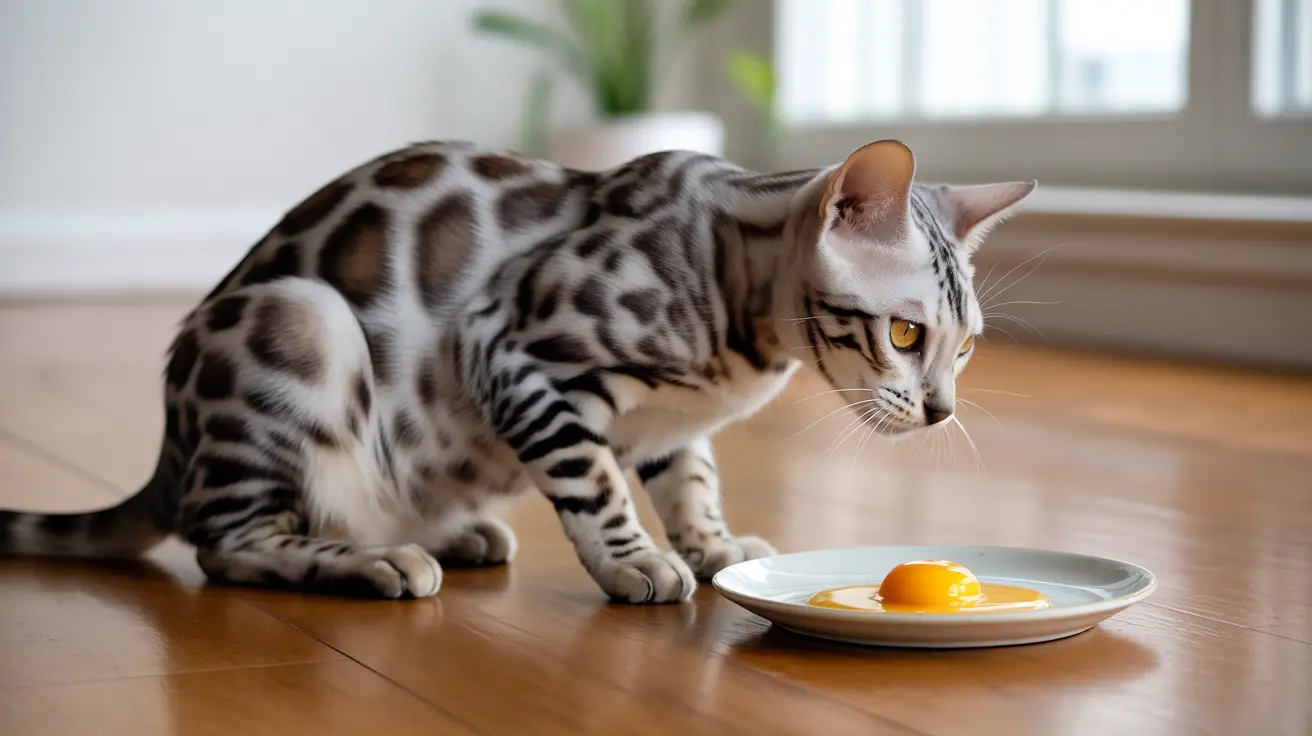Many cat owners wonder about adding egg yolks to their feline friend's diet. As a nutrient-dense food source, egg yolks can offer several benefits for cats when properly prepared and served in moderation. However, there are important considerations and potential risks that every pet parent should understand before introducing this supplement to their cat's diet.
In this comprehensive guide, we'll explore the nutritional value of egg yolks for cats, discuss proper serving methods, and outline both the benefits and potential risks to help you make an informed decision about feeding egg yolks to your feline companion.
Nutritional Benefits of Egg Yolks for Cats
Egg yolks are packed with essential nutrients that can support your cat's health. They contain high-quality proteins, vitamins A, D, and E, and important B-complex vitamins including biotin. The yolk also provides minerals such as iron and zinc, along with beneficial omega-3 fatty acids.
These nutrients contribute to:
- Healthy skin and coat maintenance
- Strong muscle development
- Improved immune system function
- Enhanced eye health
- Better bone strength
Safe Preparation and Serving Guidelines
When it comes to feeding egg yolks to cats, proper preparation is crucial for safety and optimal nutrition:
Cooking Methods
- Always thoroughly cook egg yolks to eliminate bacterial risks
- Avoid using oils, butter, or seasonings
- Boiling or poaching are the safest preparation methods
- Let the egg cool completely before serving
Portion Size and Frequency
Moderation is key when feeding egg yolks to cats. A recommended serving is no more than half a yolk, once or twice per week. This amount provides nutritional benefits while avoiding potential complications from overfeeding.
Potential Risks and Concerns
Raw Egg Risks
While some pet owners advocate for raw feeding, raw egg yolks can pose serious health risks:
- Potential salmonella contamination
- Risk of E. coli infection
- Possible digestive upset
Health Considerations
Not all cats should consume egg yolks. Consider these factors:
- Cats with obesity or weight management issues
- Those with pancreatic or kidney conditions
- Cats with known egg allergies
- Kittens or seniors with sensitive digestive systems
When to Avoid Egg Yolks
Several circumstances warrant avoiding egg yolks:
- If your cat has a diagnosed food allergy
- During treatment for certain medical conditions
- When your cat is on a specialized veterinary diet
- If there are signs of digestive upset after consumption
Tips for Introduction
When introducing egg yolks to your cat's diet:
- Start with a tiny amount to test tolerance
- Monitor for any adverse reactions
- Gradually increase to the recommended portion size
- Keep track of feeding frequency
Frequently Asked Questions
Can cats safely eat egg yolks, and are they good for them?
Yes, cats can safely eat egg yolks when they are properly cooked and served in moderation. They provide valuable nutrients including protein, vitamins, and minerals that can support your cat's health.
What are the health benefits and risks of feeding egg yolk to my cat?
Benefits include added nutrition, protein support, and vitamin supplementation. Risks include potential bacterial infection from raw eggs, excessive calorie intake if overfed, and possible digestive issues in sensitive cats.
How much egg yolk is safe to give my cat, and how often?
Feed no more than half a yolk, once or twice per week. This amount provides nutritional benefits while avoiding overconsumption risks.
Is it better to feed my cat cooked or raw egg yolk, and what preparation methods are safest?
Cooked egg yolk is safer than raw, as it eliminates bacterial risks. Boiling or poaching without additives are the safest preparation methods.
Are there any cats that shouldn't eat egg yolk, or times when it could be harmful?
Cats with obesity, pancreatic issues, kidney disease, or egg allergies should avoid egg yolks. Also, if your cat shows any signs of digestive upset, discontinue feeding egg yolks and consult your veterinarian.
Conclusion
Egg yolks can be a healthy addition to your cat's diet when properly prepared and served in moderation. While they offer valuable nutrients, they should never replace a complete and balanced cat food. Always consult with your veterinarian before making any significant changes to your cat's diet, and monitor your pet's response when introducing new foods.






